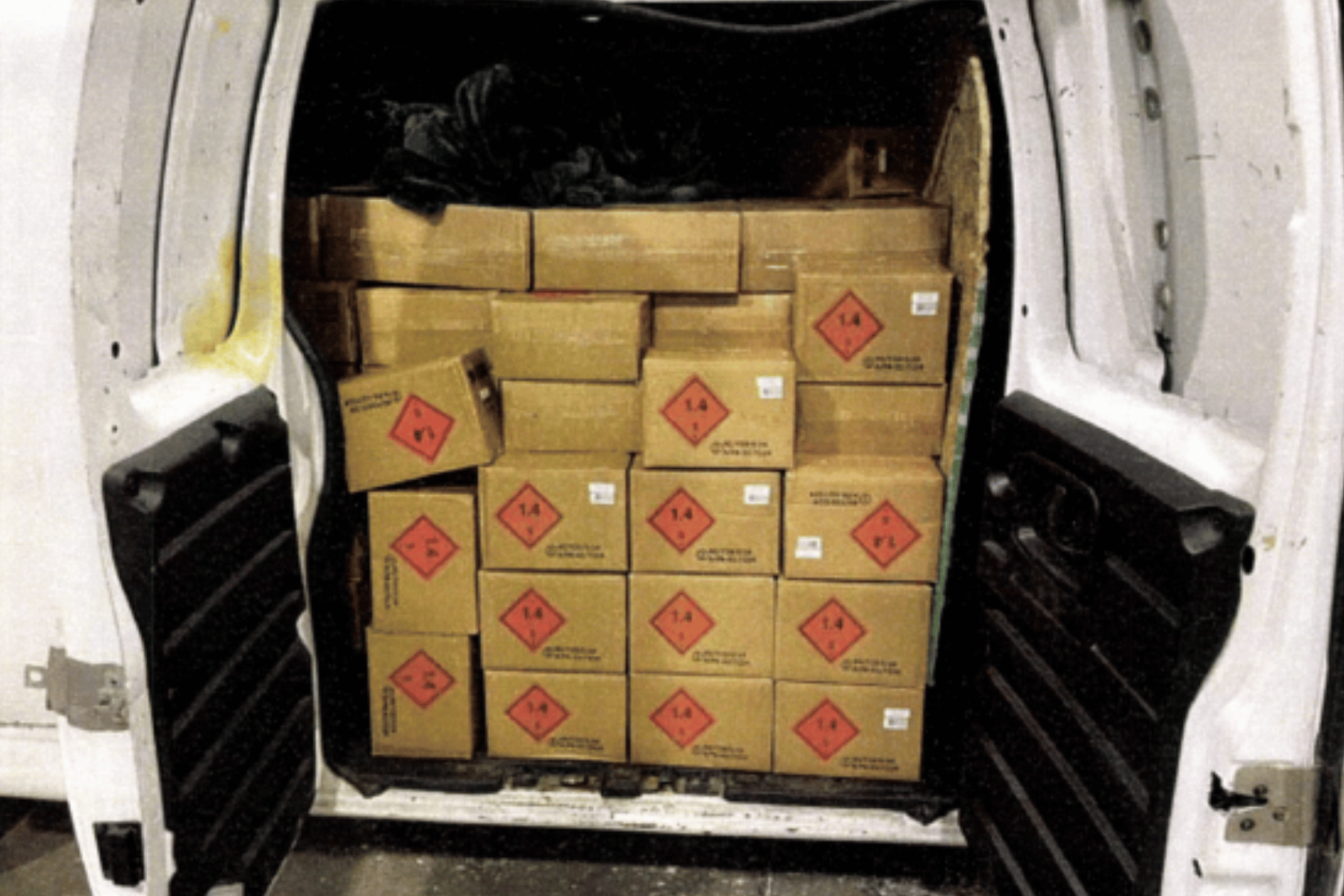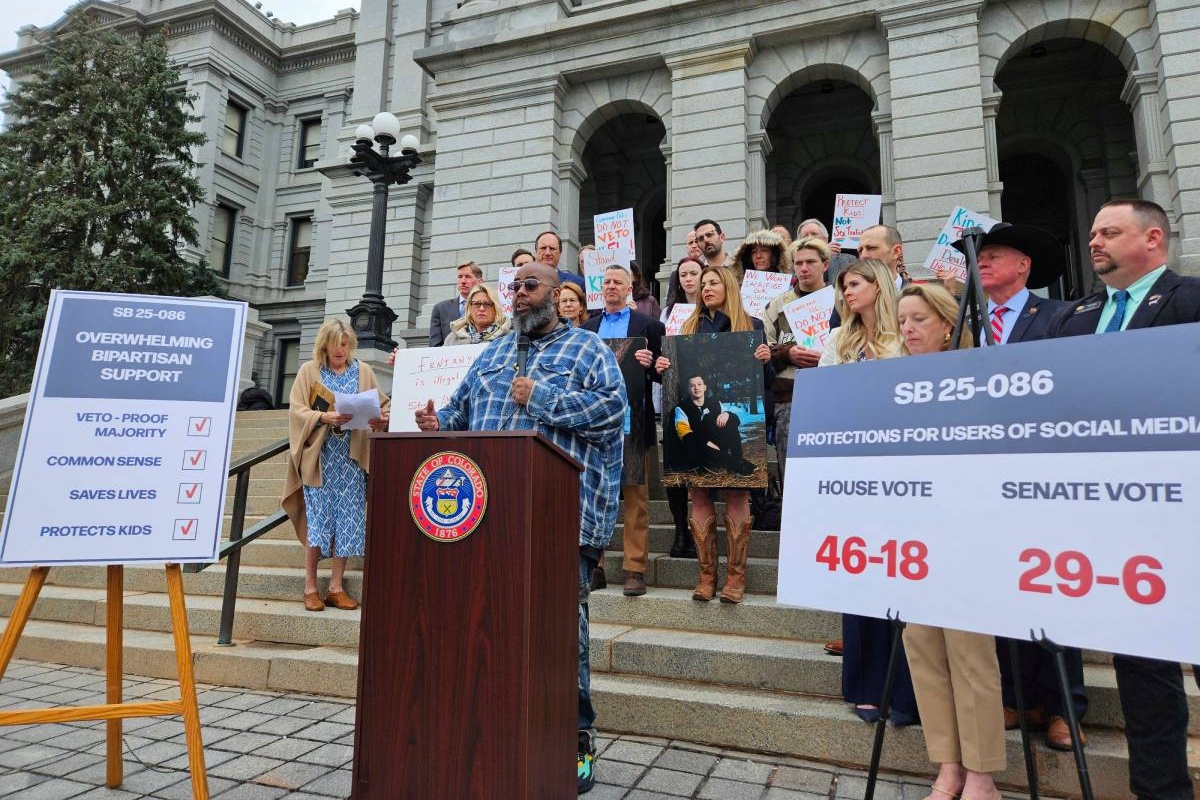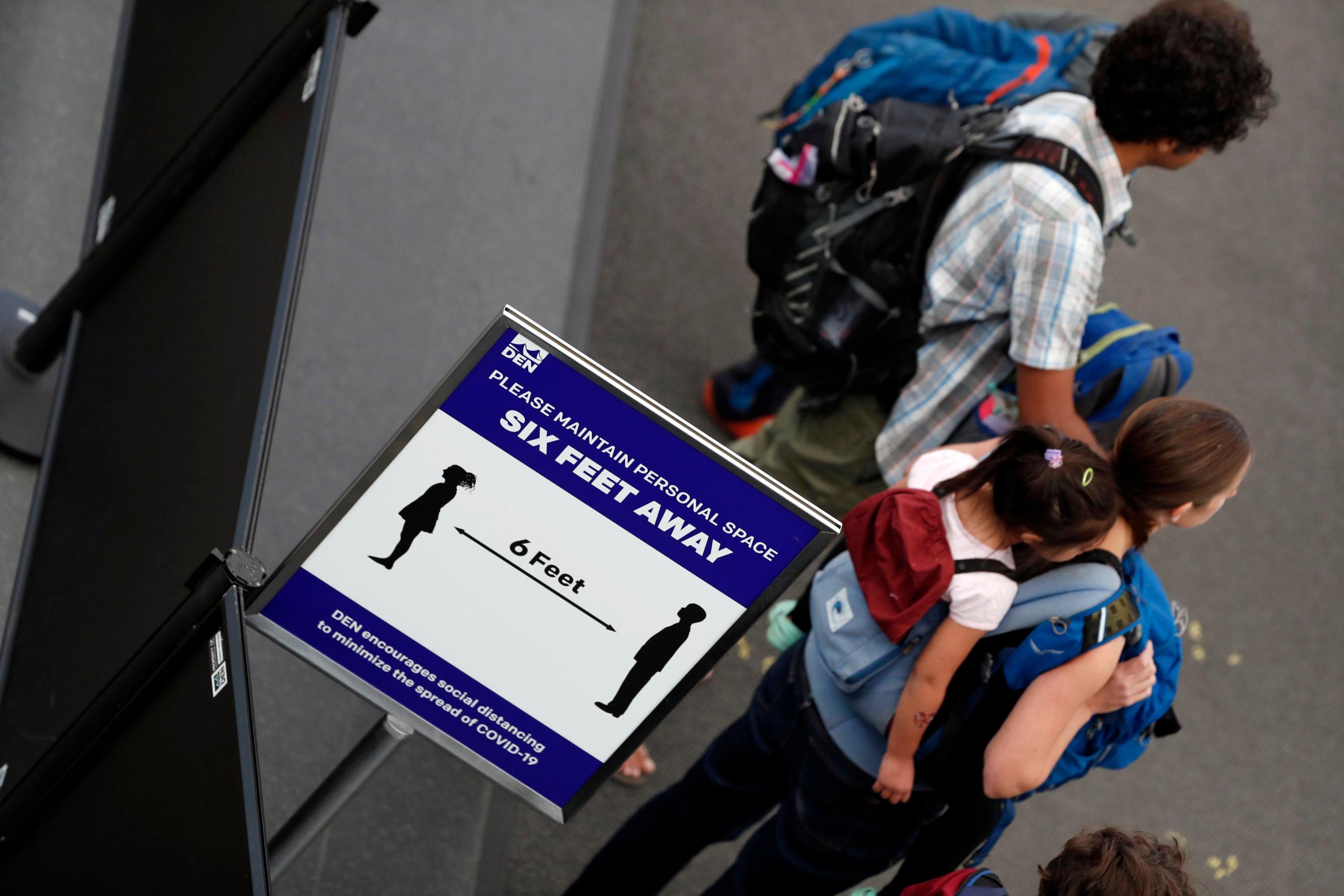
This post collects all of our reporting and updates on the coronavirus in Colorado for Thursday, April 2, 2020. Friday's live blog of updates is here. Our original play-by-play of reporting continues below.
7:01 p.m. — These five DCPA shows will not go on
The Denver Center for the Performing Arts is making big changes to survive a deficit of millions of dollars resulting from closures related to COVID-19.
The venue announced it is laying off some staff, placing others on unpaid leave and cutting hours and wages for others as it aims to reduce its staffing costs by half.
DCPA will also cancel five upcoming shows. These include the touring Broadway productions of “The SpongeBob Musical” and “Mean Girls" and Denver Theater performances of “Improvised Shakespeare,” “Until the Flood” and “Choir Boys.”
The center previously had suspended performances until May 11.
DCPA is also eliminating 523 educational classes and school programs, 19 rental events and two fundraisers.
The venue says the moves should make it possible to program lineup for the 21-22 season.
Tickets for the August performance of Hamilton are still scheduled to go on sale to the general public April 20, at least for now.
— Kelley Griffin
5:48 p.m. — More live local music for you
Today, the Underground Music Showcase is bringing you a performance from Corsicana.
The Streams With Grit series brings a live performance from a Colorado musician to you via Facebook every day at 5 p.m.
— Alex Scoville
5:45 p.m. — The unemployment picture keeps getting darker
New unemployment data shows how hard restaurants and entertainment venues were hit by the initial wave of COVID-19 layoffs.
"There was an industry that stood out," said Ryan Gedney, senior economist with the Colorado Department of Labor and Employment.
Leisure and hospitality workers made up about 28 percent of unemployment claims for the week ending March 14, when layoffs first started to spike
That was a sixfold increase from the week before. The sector includes arts, entertainment, hotels, restaurants and recreation.
Oil extraction workers also rushed for unemployment as oil prices collapsed, with claims from the mining sector doubling that week. Detailed data for more recent weeks isn't available yet, but Gedney expects to see dramatic increases in unemployment for retail, education, travel, services and "certain sectors of health care," he said.
More recent data shows a total of 61,583 people initiated unemployment claims last week, tripling the previous week's number. Before the outbreak, the state had never seen more than 8,000 claims in a week.
— Andy Kenney
5:33 p.m. — Two Colorado school districts will remain remote for the rest of the school year
The Thompson and Poudre school districts in northern Colorado both announced Thursday that they will keep buildings closed and learning online for the remainder of 2019-2020 academic year.
The decisions come a day after Gov. Jared Polis extended the statewide school closure through April 30.
Typically, Colorado has a minimum requirement of 160 days of instruction per year. But this year, schools won’t have to meet minimum days or hours, according to guidance released recently by Colorado’s Education Commissioner Katy Anthes. That means schools won’t have to make up lost days due to the new coronavirus over the summer or some other time.
Districts also have flexibility to determine graduation requirements for this year’s seniors, as well as grades and whether students should advance to the next grade.
The "critical services" listed in an updated public health order issued by the Colorado Department of Public Health and Environment include K-12 public and private schools, “for the purpose of providing meals, housing, facilitating or providing materials for distance learning, and providing other essential services to students.”
Thompson School District has 31 schools and 13 early childhood programs serving about 16,000 students.
Poudre School District has 57 schools, including five charters, and serves about 30,000 students. It is the state's ninth-largest school district.
— Corey Jones and Alex Scoville
4:06 p.m. — The latest coronavirus case numbers
There are now 3,728 cases of COVID-19 in Colorado, according to the latest data from state health officials. That's an increase of 328 over yesterday.
Ninety-seven people have now died of the disease. That is 17 more than the day before.
There are 710 cases hospitalized, 90 more than yesterday.
There are four new outbreaks at residential and non-hospital health care facilities. CPR is working to identify the facilities.
The state has tested 19,788 people.
— Alex Scoville
4:02 p.m. — Looking for a very Colorado way to help? Donate your ski goggles
Goggles for Docs sprung out of a New York doctor and skier's mind in a time where skiers are facing a canceled season and doctors are facing a shortage in personal protective equipment.
As first reported by Outside Magazine, the effort has helped the gear companies and the regular snow sports-obsessed person alike deliver their used and new masks to hospitals around the country.
One Colorado hospital, San Luis Valley Health, has partnered with Goggles for Docs. Donators have already mailed the 100 masks it asked for.
Kelley Gurule, the director of the San Luis Valley Regional Medical Center Foundation, coordinated with Goggles for Docs.
"Depending on the severity and the length of this, we don't know (what equipment we'll have available)," Gurule said. "Part of the issue that we're having — and we're not the only small rural area — is the supply chain. We can order stuff, but we're not getting it in. Honestly, we're preparing for the worst."
"So at this point, we don't know if we're going to get any more supplies. We're just trying to do anything that we possibly can to stretch our professional PPE equipment," Gurule said.
— Alex Scoville
2:45 p.m. — King Soopers will offer a "hero bonus" to frontline workers as Kroger ups COVID-19 precautions

Frontline workers at King Soopers and other Kroger stores will get a weekly check with a premium of $2 above their standard base pay. Kroger called it a "hero bonus" in a Thursday statement.
Grocery, supply chain, manufacturing, pharmacy and call center employees are all eligible. The premium will be applied to hours worked going back to March 29 and through April 18.
Also in Thursday statement, Kroger said it would allow employees to wear gloves and masks at work, and is working on securing those supplies. The company added that it is upping daily sanitation routines, adding plexiglass shields as a barrier between customers and cashiers in check-out lanes and installing "social distancing" markers on the floor to help keep people six feet apart.
Kroger also said it is adjusting hours "to allow more time for our associates to rest, clean and replenish inventory." Under new emergency leave guidelines, workers diagnosed with COVID-19 or under a mandatory quarantine will receive two weeks of paid time off.
The company also launched a $5 million relief fund for workers to tap into if they "face hardship due to COVID-19, including lack of access to childcare and for those considered higher-risk."
— Alex Scoville
2:28 p.m. — Colorado extends special health insurance enrollment period for COVID-19
Colorado is extending the COVID-19 special enrollment period for individual health insurance.
Coloradans can now enroll through April 30 on the state's health insurance exchange, Connect for Health Colorado, on their website or via phone at 855-752-6749. The original deadline, set on March 19, was April 3.
Health insurance will go into effect May 1 for anyone who enrolls April 3 or later.
“We want to do everything we can to ensure Coloradans have the resources they need during this difficult time,” Gov. Jared Polis said in a statement. “As this pandemic continues, we know that having health insurance will be critical, which is why we are extending this enrollment period. Everyday my administration is evaluating what steps we can take to minimize the health impact and economic impact of this crisis.”
— Alex Scoville
1:37 p.m. — RTD and other Colorado transit agencies are going to get a booster shot of federal cash
The Federal Transit Administration announced Thursday that it's sending about $285 million to Colorado to support the state's struggling public transit agencies.
Most of that — $232 million — will go to Denver's Regional Transportation District, which has seen ridership fall 70 percent and plans to cut service drastically on April 19.
The FTA says the money can be used for any operations costs associated with COVID-19.
"These funds will help us in a big way as we navigate the COVID-19 crisis," RTD’s interim General Manager and CEO Paul Ballard said in a statement.
RTD doesn't yet have a clear picture of just how badly COVID-19 will decimate its revenue. But even before that hit last month, the agency was in a tight financial spot that will either mean more service cuts or less savings for future rail projects.
— Nathaniel Minor
1:16 p.m. — El Paso County deputy dies of COVID-19 just a day after diagnosis
A 41-year-old El Paso County Sheriff’s Deputy died from COVID-19 on Wednesday, becoming one of Colorado’s youngest victims. Deputy Jeff Hopkins was diagnosed with the disease just one day before his death.
Hopkins last assignment was as an intake and release deputy at the El Paso County Jail, and the Sheriff’s Office is now investigating to determine his contacts in the days before he fell ill.
In a Thursday press conference, Sheriff Bill Elder said eight other deputies currently have the COVID-19 virus.
Through Wednesday, El Paso County had the largest number of deaths in Colorado, with 14 officially recorded by the state.
Hopkins had been employed with the Sheriff’s Office since 2001 and is survived by his wife.
— Dan Boyce
11:51 a.m. — Cómo Se Propagó El Coronavirus En México, En Parte, Por Ricos Que Fueron A Esquiar En Vail, Colorado
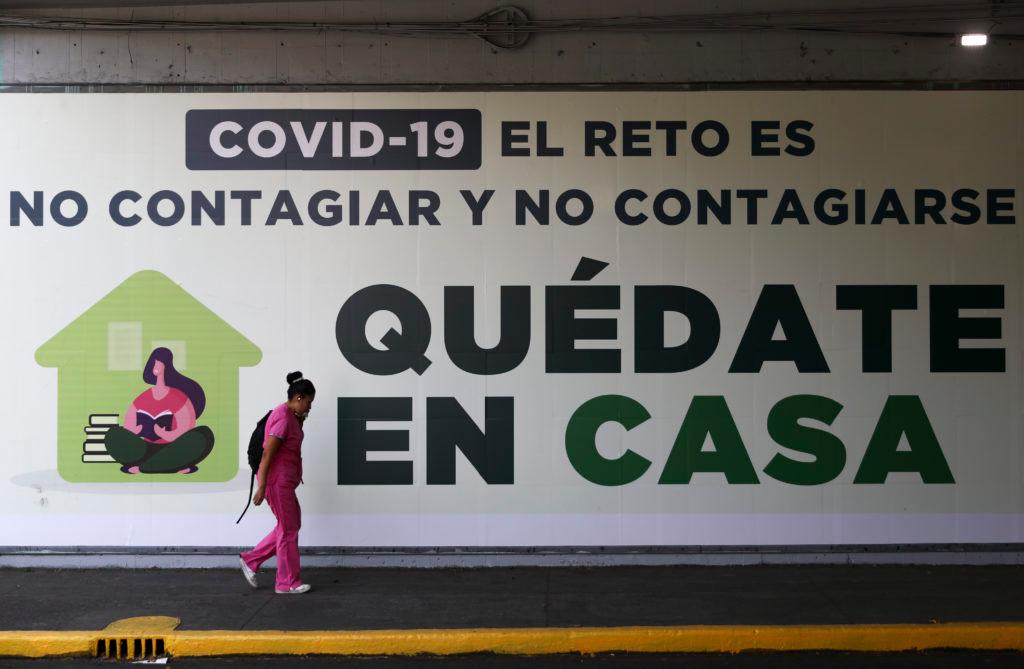
Los ciudadanos más ricos de México fueron entre los primeros en contraer el coronavirus, tras un viaje de esquí a Vail, Colorado. A largo plazo, es probable que los más pobres del país sufran más.
— Allison Herrera
11:15 a.m. — Teacher survey finds worries about remote learning and student eviction
Working through the challenges of distance learning with their students and their students’ families’ ability to pay rent are their top worries during unprecedented school closures, according to a survey of more than 2,400 Colorado public school teachers.
In the survey, the Colorado Education Association, the state’s largest teacher’s union, asked members their top concerns and what they want the union to advocate for during the closures.
Ninety-two percent want more supports for students if schools are closed for extended periods of time. Governor Jared Polis announced Wednesday that schools would be closed until at least April 30.
Eighty-six percent of teachers said they want to take action to halt the evictions of families from their homes and to expand access to free, healthy food at food banks during the pandemic. Getting mental health supports to students and students who lack access to nutritious meals at school are also weighing heavily on teachers' minds. Many also want to see federal immigration (ICE) raids stopped during the pandemic.
“Education is important and I want the kids to still have some normalcy. I worry more about how their families are doing financially and health-wise,” remarked one licensed educator from the Adams 12 district in the survey comments. Commenters were not identified.
“I worry that varying levels of access to technology will create a new kind of segregation for students,” responded one education support professional in Jefferson County.
CEA leaders and staff across the state will analyze the survey results and create opportunities to get members involved in advocating for the student-centered issues that ranked highest in the poll.
— Jenny Brundin
10:50 a.m. — Colorado plans 12,000 temporary beds for coronavirus surge

Long rows of temporary hospital beds may soon rise in Colorado sports venues, convention centers or warehouses as the state prepares for a surge of COVID-19 patients.
“It will look similar to what you're seeing in New York City right now in Central Park,” Gov. Jared Polis said on Wednesday, referring to a coronavirus tent hospital that opened in the Big Apple's crown-jewel park.
Polis wants the state and the U.S. Army Corps of Engineers to prepare 2,000 temporary new “surge” beds by April 18, plus thousands of more beds in hotels and dorms to quarantine asymptomatic patients.
Read the rest of the story here.
— Andrew Kenney
10:35 a.m. — Profiles of Colorado in the age of coronavirus
Each day, CPR News is putting together profiles of Coloradans amidst the coronavirus pandemic — how they're handling the stay-at-home order, what challenges they're seeing and more about their individual experiences. We want to hear from you, too.
These profiles will be published in our COVID-19-focused Evening Update, available to all our newsletter subscribers. Here's an preview:

Susan Adams, of Colorado Springs, is 72 and retired — though she still teaches a class at Front Range Community College. Before the coronavirus pandemic, Susan and her husband were avid volunteers at the Garden of the Gods Information Desk, and the Fine Arts Center at Colorado College. But in this new normal, that's all stopped. We asked Susan about their new normal, what worries her, how the transition to teaching online has been and what silver linings she's found.
The rest of our short interview with Susan will be sent to subscribers this evening. Not a subscriber yet? You can fix that right here.
— Daniel J. Schneider
9:05 a.m. — Polis to D.C.: We'd like more protective gear and ventilators, please
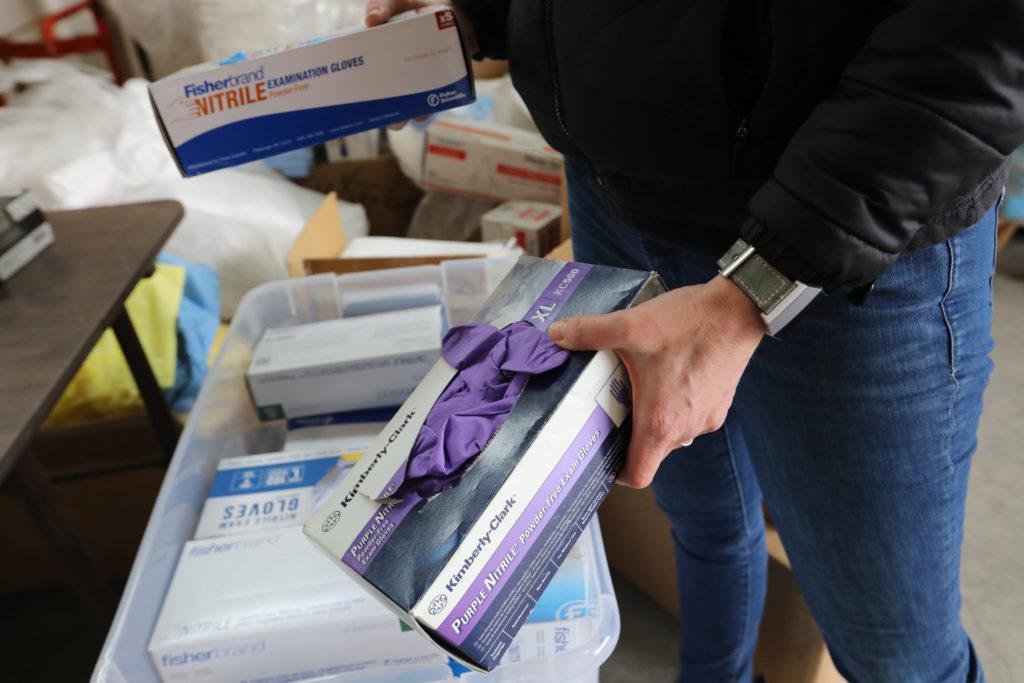
Polis reiterated Colorado's need for more ventilators and personal protective gear in his news conference yesterday. He had sent a letter to Vice President Mike Pence to get federal help to meet the shortage.
“We are facing a crisis-level shortage of these essential supplies to protect our health care workers and first responders. Colorado’s COVID-19 death rate is rising faster than any other state right now; the pandemic is spreading so fast that lags in testing are masking the true conditions experienced by Coloradans across the state,” Polis wrote.
The state is looking for:
- 10,000 ventilators
- 2M N95 masks
- 4.4M surgical masks
- 720K gowns
- 880K face shields
- 4.3M gloves of various sizes
The shortage of gear comes as the state prepares for an expected surge of hospitalizations, sets crisis care guidelines and retrains some medical specialists to serve as frontline health care workers.
— Jim Hill
8:12 a.m. — No jury duty in El Paso or Teller
A top judge in El Paso and Teller counties has canceled jury duty through the third week of April to reduce risks from coronavirus.
Defendants still have to go to scheduled hearings so judges can determine the next steps. The Gazette reports the delays raise questions over defendants’ rights to a speedy trial. Felonies trials can be postponed under quote "exceptional circumstances" but there are no provisions for postponing misdemeanors.
— Natalia Navarro
7: 24 a.m. — Unemployment claims continue their climb
More than 6.6 million Americans applied for unemployment benefits last week, far exceeding a record high set by the previous week's claims, a sign that layoffs are accelerating in the midst of the coronavirus. The previous record was 3.3 million, which, again, was just reported for the previous week.
The job cuts mount against the backdrop of economies in the United States and abroad that have almost certainly sunk into a severe recession as businesses close across the world.
The same trend holds true in Colorado. For the week ending Mar 28, 60,784 claims were filed. That's a 207 percent jump over the last week in which 19,774 claims were filed. Both numbers represented significant records.
— The Associated Press, Jim Hill
6:38 a.m. — The current case count in Colorado
There are currently — as of April 1 — 3,342 known positive cases of COVID-19 in the state. More than 18,000 have been tested and there have been 80 deaths.
As the pandemic spreads, Colorado hopes to have 5,000 ICU beds available by April 18. Officials say that'll help prepare for more hospitalizations. Scott Bookman, the incident commander for the state health department, said the state expects a surge of patients that could overwhelm hospitals sometime between later this month and July.
"We also know, based on the clinical evidence by areas that have been previously hit by COVID-19 that these patients are going to require intensive care," he said. "They’re going to be severely ill and ventilator-dependent for anywhere between an average of 11 to 20 days."
State officials have reiterated that most people with flu-like symptoms will not need medical care and should instead isolate themselves from others.
— Corey Jones, Jim Hill




